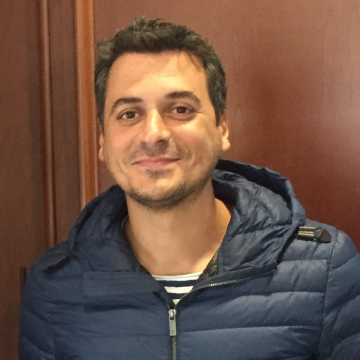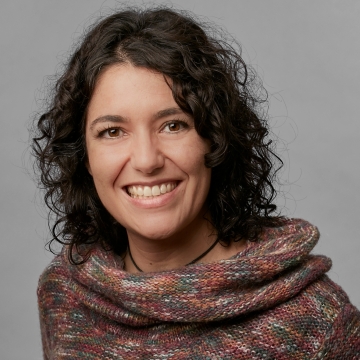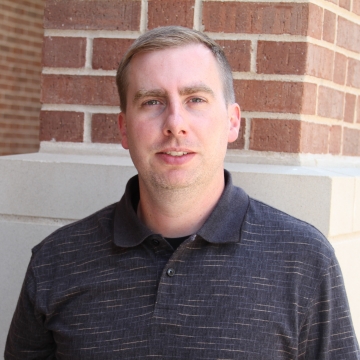WaterSES members entail a transdisciplinary, international team that includes expertise to link terrestrial and aquatic ecology to ecosystem services flows and tradeoffs, science to inform adaptive governance towards sustainability, and strategic partnerships (from local to international) to achieve co- production of knowledge and innovative solutions.


Antonio J. Castro (PhD) is Assistant Research Professor in Ecosystem Services and Social-Ecological Systems at Idaho State University (USA). He is member of the Programme for Ecosystem Change and Society (PECS) and lead scientist of the Dryland WG at the Ecosystem Services Partnership (ESP)

Caryn C. Vaughn is George Lynn Cross Distinguished Research Professor and Presidential Professor in the Oklahoma Biological Survey and Department of Biology at the University of Oklahoma. Her research focuses on the ecology and conservation biology of streams and on quantifying the ecosystem services provided by stream organisms.

Berta Martín-López (PhD) is junior professor at the Institute of Ethics and Transdisciplinary Sustainability Research in Leuphana University of Lüneburg (Germany). She is member of the Scientific Steering Committees of Future Earth Programs: ecoSERVICES and the Programme for Ecosystem Change and Society (PECS), and Coordinating Lead Author the Intergovernmental Platform on Biodiversity and Ecosystem Services (IPBES).

Jodi joined the Human-Environment Systems Research Center at Boise State University in 2015. The goal of her research is to better understand how human societies and healthy ecosystems can thrive, on a rapidly changing planet. She focuses on quantifying human-environment interactions and whether they create sustainable environmental trajectories. She works with a wide range of people, including economists, ecologists and anthropologists, farmers, hunters and tribal communities. She has worked in several of the most special places on earth, including the High Himalaya, tropical forests in the Congo, the Bolivian Andes, and the shorelines of Lake Superior.

Marina García Llorente, Ph.D., is a senior researcher at the Madrid Institute for Rural, Agricultural and Food Research and Development (IMIDRA). She is also a collaborating researcher at the Social-Ecological Systems Laboratory of the Autonomous University of Madrid, Spain. Her main area of research is focused on the links between ecosystem functioning and human wellbeing using a social-ecological perspective and the ecosystem service approach.

Cristina Quintas Soriano, PhD., is a Post-Doc Associate at Idaho State University (ISU). Her main research area is focused on the study of the links between ecosystems and human wellbeing using a multidisciplinary approach for the analysis of ecosystem services considering different dimensions of valuation. She is now involved in the MILES program and the PECS project, working on ecosystem services across different social-ecological systems in Spain, Oklahoma, and Idaho.

Katrina Running is an Assistant Professor of Sociology at Idaho State University. She received a Ph.D. in Sociology from the University of Arizona in 2013. Her research examines how farmers are adapting to new agricultural water restrictions in Idaho, international variation in public opinion about climate change, and the public’s perception of ecosystem services in Idaho.

Dr. Baxter's research focuses on rivers and streams, but more generally on the ecological linkages between water and land. He and his students study the vectors of aquatic-terrestrial connectivity, their ecological roles, and the consequences of their disruption. These reciprocal linkages are critical to watershed ecosystems, and they couple land and water in their vulnerability to the agents of global environmental change.

Carla L. Atkinson is an Assistant Professor in the Department of Biological Sciences and is affiliated with the Center for Freshwater Studies at the University of Alabama. Her research focuses on scaling organismal level effects of freshwater organisms interacting within communities to ecosystem-level processes.

Dr. Jason Julian is an Associate Professor of Water Resources in the Department of Geography at Texas State University. He studies human-environment interactions across a variety of landscapes, from central Texas all the way to New Zealand. His specialty areas of research and teaching are water resources, land use change, ecosystem services, and protected places.

Dr. Haifeng (Felix) Liao is an Assistant Professor in the Department of Geography at the University of Idaho. Felix earned his doctorate in Geography from University of Utah in 2014, following his M.Phil. in Geography from the University of Hong Kong in 2008. Felix is a broadly trained human geographer and a spatial social scientist. His primary areas of interest are regional development, globalization, urban sustainability, land use, and GIS spatial analysis.

Morey Burnham is a broadly trained environmental social scientist. His research focuses on the interface of climate change adaptation and vulnerability, agriculture, and water in arid and semi-arid regions. In particular, his work examines the multi-scalar social-ecological processes that shape the ability of individuals, households, and institutions to adapt to climate and other social-ecological change. He has conducted research on this topic in China, Idaho, and Utah.

Egoh's key competencies are in ecosystem services, conservation planning, restoration ecology and invasion biology. Before joining the CSIR, Egoh worked for the European Commission and contributed to various policy implementation tasks on biodiversity and ecosystem services including the development of a framework for mapping and assessing ecosystem services which is being used by European Union member states.

Albert Norström is executive director for the Future Earth Programme on Ecosystem Change and Society (PECS). The principal approach of PECS research is the in-depth understanding of place-based, long-term social-ecological case studies, using a broadly similar set of conceptual frameworks and tools, leading to comparisons in order to reveal general principles for sustainably managing these systems.

Irene Pérez Ramírez is a Ph.D student in socio-ecological analysis of ecosystem services at the research group Madrid Institute for Rural, Agricultural and Food Research and Development (IMIDRA). Her research takes part in the Social-Ecological Systems Laboratory of the Autonomous University of Madrid, Spain. Her work is focused in the study of the ecosystems services since different disciplines as agroecology, ethnography and geographic information system.